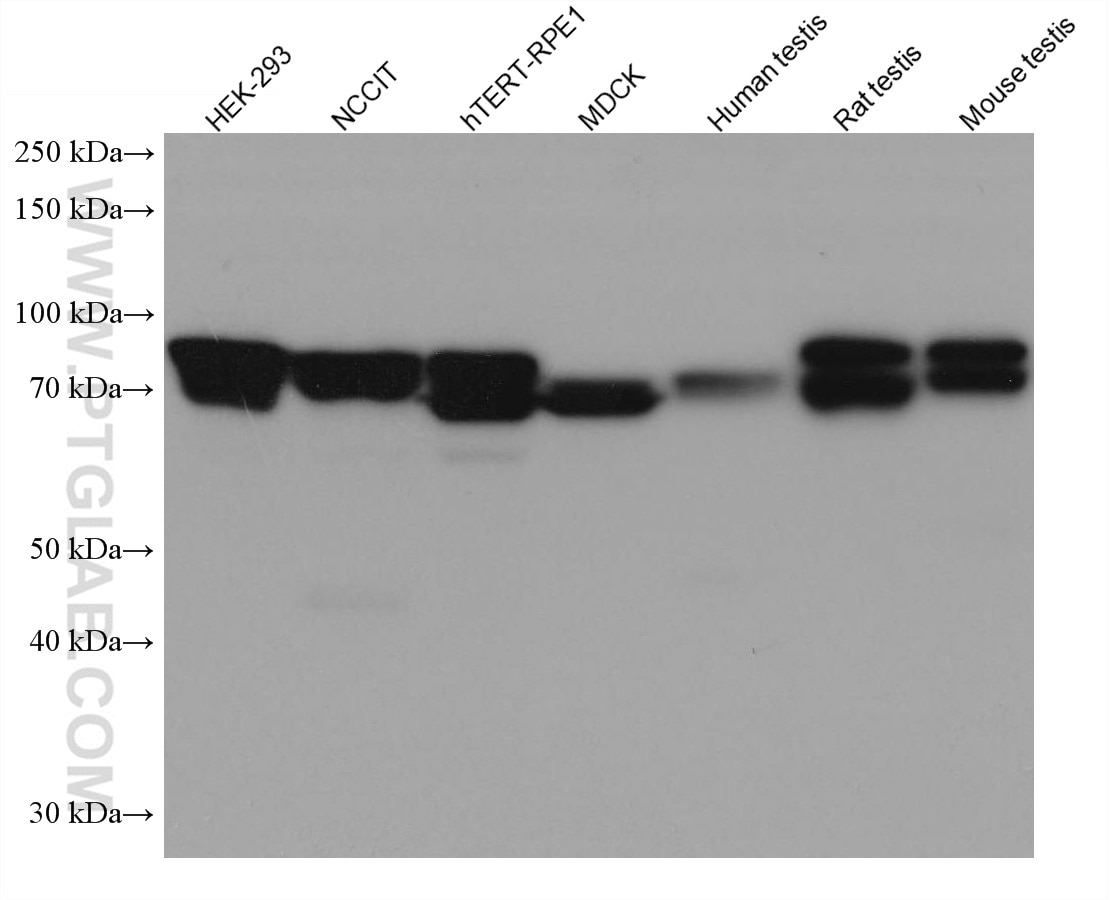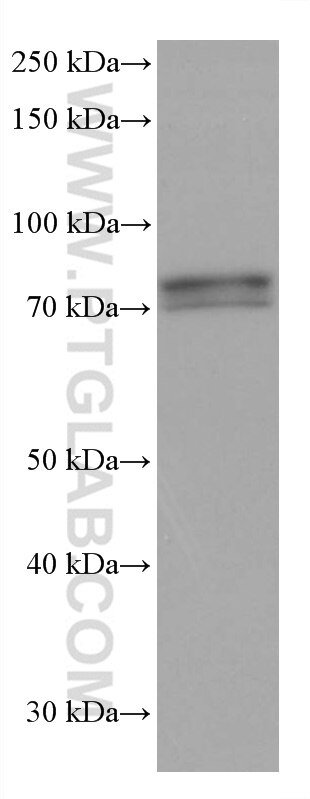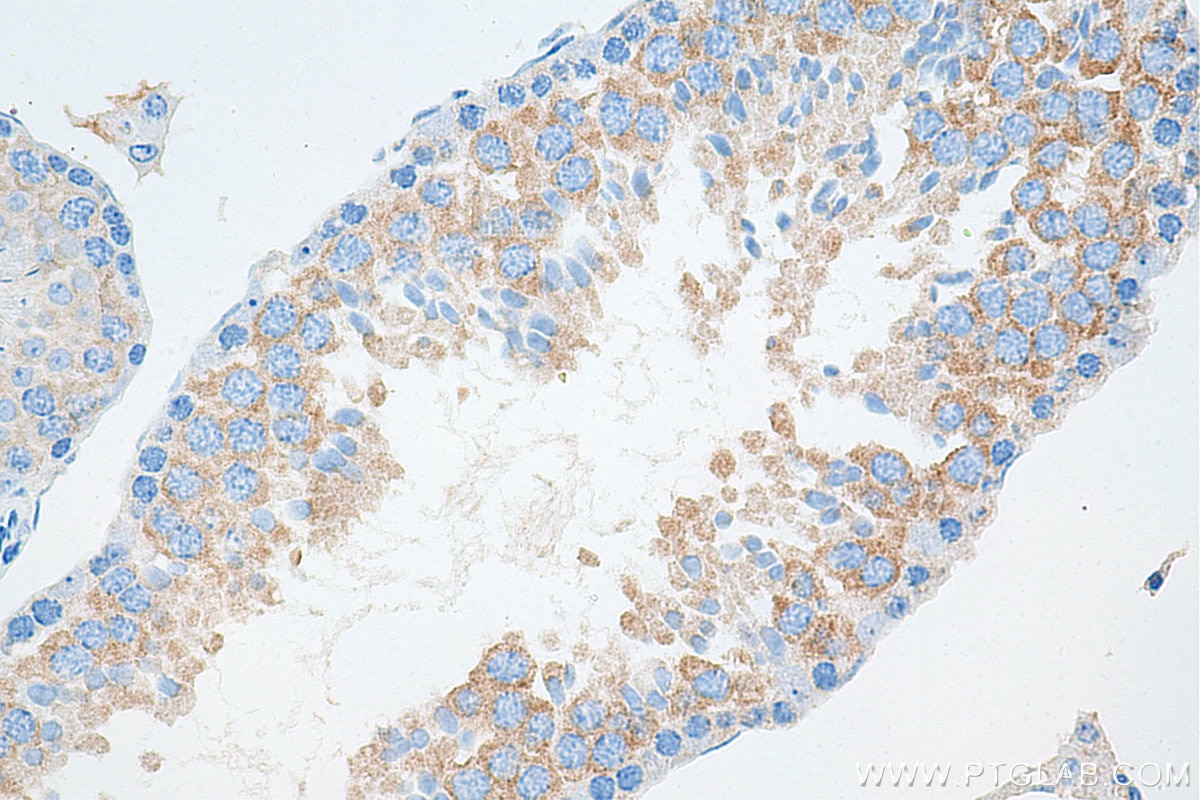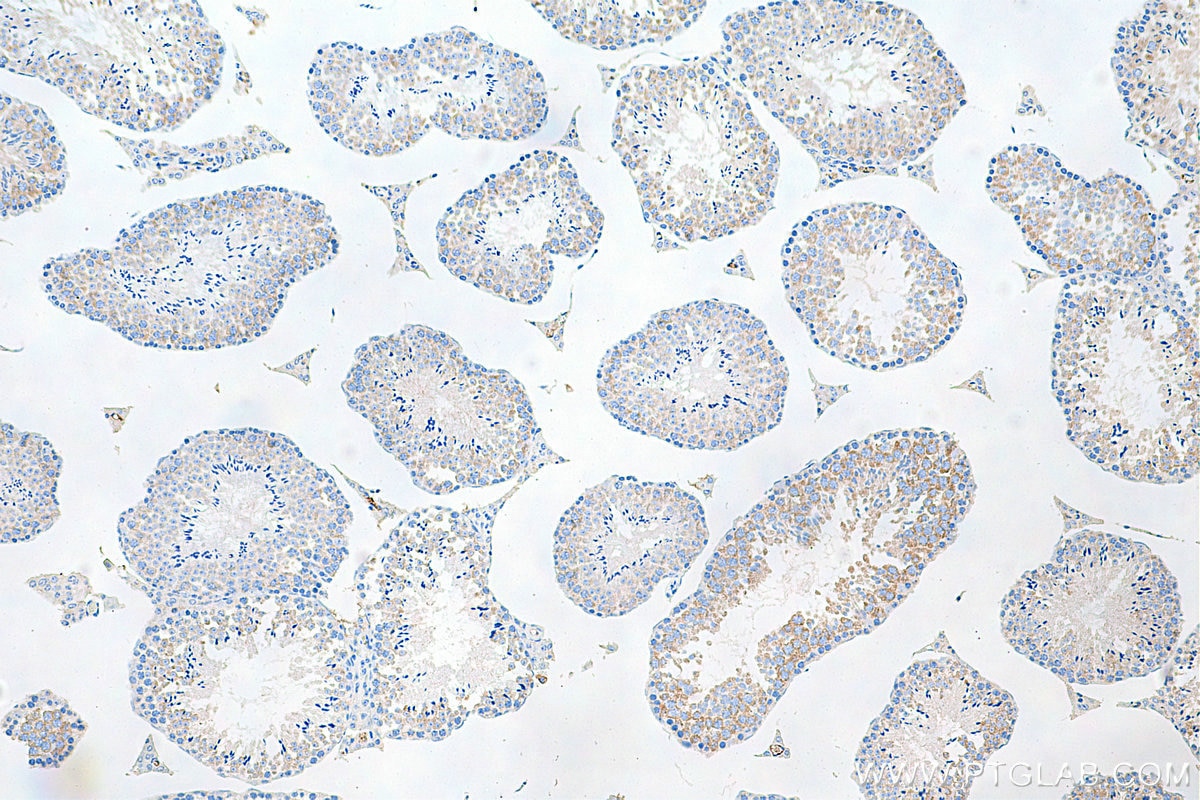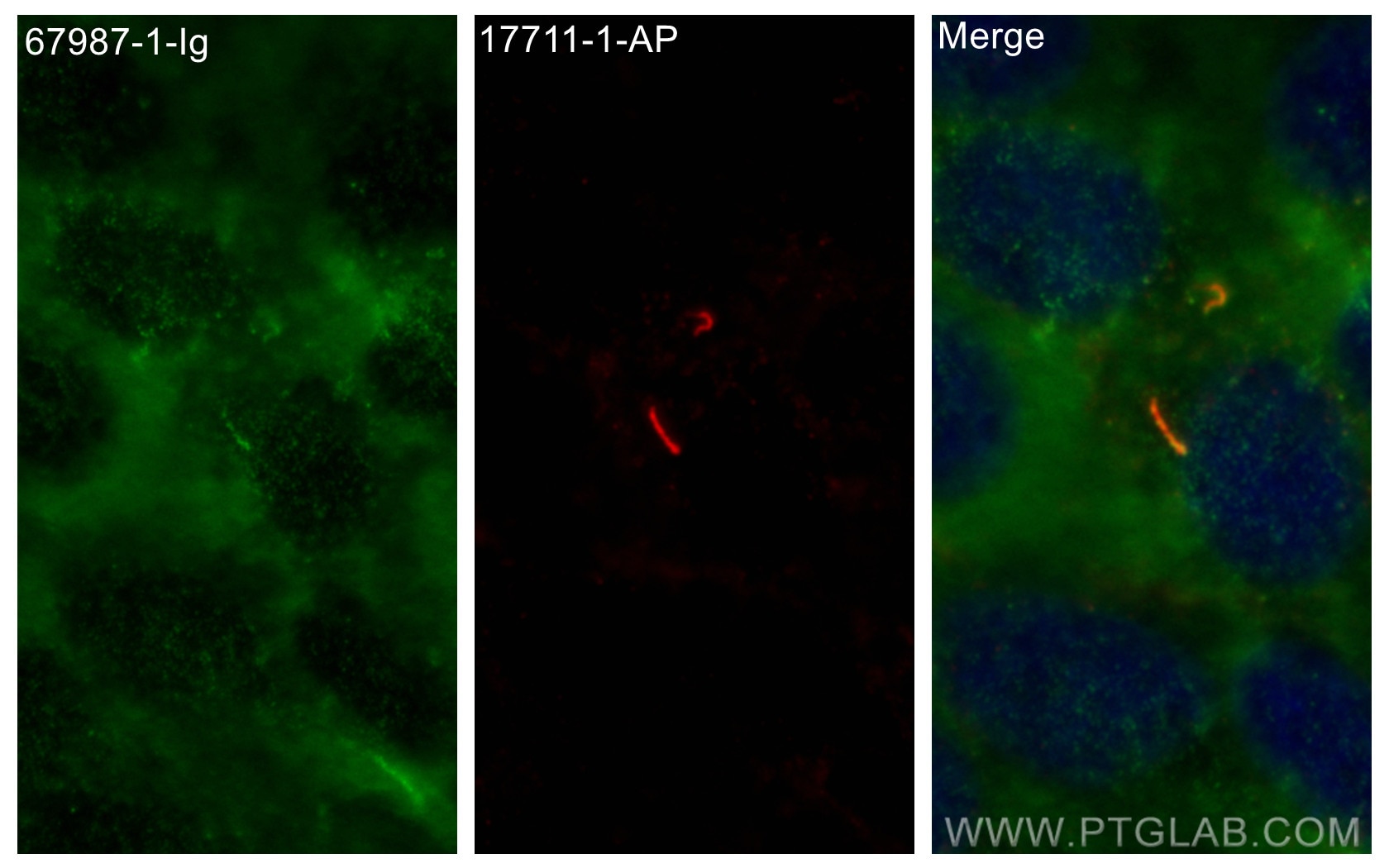Anticorps Monoclonal anti-IFT81
IFT81 Monoclonal Antibody for WB, IF/ICC, Indirect ELISA
Hôte / Isotype
Mouse / IgG1
Réactivité testée
canin, Humain, Lapin, rat, souris
Applications
WB, IF/ICC, Indirect ELISA
Conjugaison
Non conjugué
CloneNo.
1D5A3
N° de cat : 67987-1-PBS
Synonymes
Galerie de données de validation
Informations sur le produit
67987-1-PBS cible IFT81 dans les applications de WB, IF/ICC, Indirect ELISA et montre une réactivité avec des échantillons canin, Humain, Lapin, rat, souris
| Réactivité | canin, Humain, Lapin, rat, souris |
| Hôte / Isotype | Mouse / IgG1 |
| Clonalité | Monoclonal |
| Type | Anticorps |
| Immunogène | IFT81 Protéine recombinante Ag31629 |
| Nom complet | intraflagellar transport 81 homolog (Chlamydomonas) |
| Masse moléculaire calculée | 676 aa, 80 kDa |
| Poids moléculaire observé | 70-80 kDa |
| Numéro d’acquisition GenBank | BC029349 |
| Symbole du gène | IFT81 |
| Identification du gène (NCBI) | 28981 |
| Conjugaison | Non conjugué |
| Forme | Liquide |
| Méthode de purification | Purification par protéine G |
| Tampon de stockage | PBS only |
| Conditions de stockage | Store at -80°C. 20ul contiennent 0,1% de BSA. |
Informations générales
Intraflagellar transport (IFT), mediated by molecular motors and IFT particles, is an important transport process that occurs in the cilium and has been shown to be essential for the assembly and maintenance of cilia and flagella in many organisms. IFT particles are multi-subunit complexes of proteins that functions to move non-membrane-bound particles from the cell body to the tip of cilium or flagellum, then return them to the cell body. Transport towards the ciliary tip is regulated by the IFT complex B (IFT-B), consisting of at least 15 IFT proteins, in association with kinesin motors, whereas transport from the ciliary tip back to the base is executed by a dynein motor in association with the IFT complex A (IFT-A), currently known to be composed of six IFT proteins. IFT81 is a subunit of IFT complex B.It may play a role in development of the testis and spermatogenesis. There are some isoforms of IFT81 with 73-78 kDa and 43-50 kDa.
